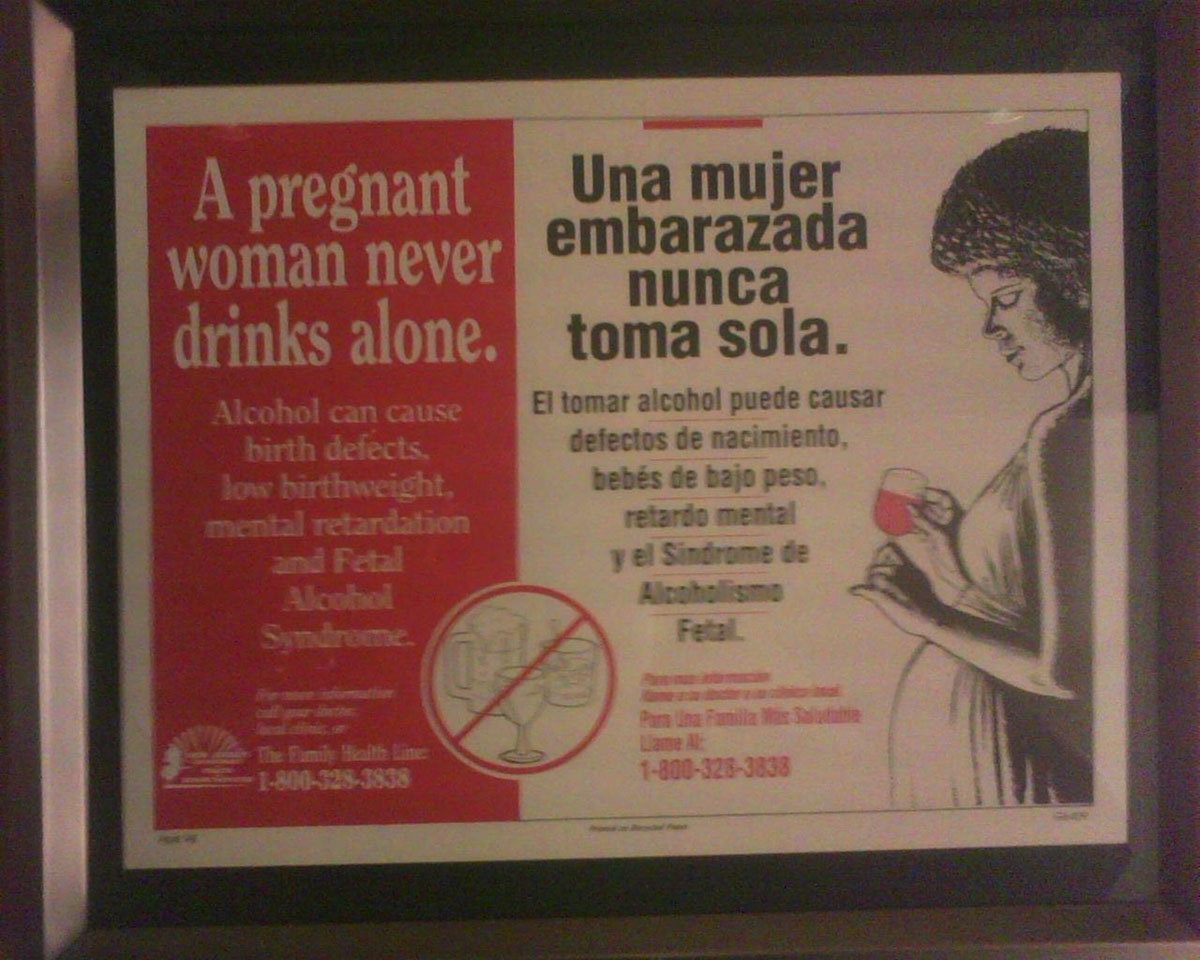Alcohol is known to have adverse effects on the health outcomes of the babies born to mothers who drink alcohol during pregnancy. Early researchers struggled to put a safe limit on the amount of alcohol that could be consumed during pregnancy without putting the baby at significant risk. Recent experimental trials have established that alcohol ingestion is hazardous even in small amounts.
An extensive study was carried out by Nicole Cameron, the assistant professor of psychology at Bing Binghamton University in New York and his colleagues in collaboration with Michael Nizhnikov from South Connecticut University and subsequently published in Alcoholism: Clinical and Experimental Research. The aim was to study the association between the consumption of alcohol in pregnancy and alcohol-related behavior in the offsprings.

During the trial, pregnant rats were given 1 glass of alcohol for 4 consecutive days at a time which is the rat equivalent of second trimester in humans. The later generations were tested for both water and alcohol preference for over two generations. They also tested the sensitivity to alcohol in the offsprings of the pregnant rats who were given alcohol as compared to those pregnant rats who were not given alcohol. This was done by studying the “righting reflex”, the ability of rats to return from lying down to standing up position.
How Does Alcohol Affect Addiction Related Behaviors In Future Generations?
The rats whose mothers and grandmothers had been given alcohol displayed a greater preference to alcohol over water with less sensitivity to its effects as compared to the rats whose preceding generations did not have alcohol. Scientists were, therefore, able to prove the link between alcohol consumption in pregnancy and alcohol dependency in humans.
If a pregnant woman drinks even as little as 4 glasses of alcohol during pregnancy, there will be an increase chance of her children and grandchildren being more alcohol dependent and less sensitive to its effects.
This study is the first of its kind to establish a pattern of alcoholism in successive generations. Earlier researches were limited to studying the effects of direct alcohol exposure on the babies in mother’s womb. This study has aptly negated the fact that small amounts of alcohol are permissible. Women usually tend to indulge in alcohol just as an occasional glass of wine or even binge drinking without even realizing its detrimental effects on their babies.
The Future Prospects
How alcoholism is passed down from one generation to the next? The question is yet to be answered. However, another study that has been published in the Journal of Neuroscience suggests that neurological changes in the brain that occur upon first time exposure to alcohol may be the underlying mechanism of transmission. This exposure to alcohol may occur during pregnancy or even during breastfeeding.
READ Early Pregnancy Symptoms and Signs
The study has paved way for future studies about how alcohol dependence is transmitted from one generation to the next. It will help fully explore the potential harms of alcohol consumption on the babies in orders to educate the expectant mothers and to decrease the rate of prenatal exposure to alcohol.
Fetal Alcohol Syndrome: How Alcohol Consumption During Pregnancy Affects The Behavioral Patterns In The Unborn Child
Fetal alcohol syndrome is related with a wide range of cognitive problems that occur as a result of exposure to alcohol during the prenatal life. Over the years, many studies have been carried out to find out the exact mechanisms by which alcohol causes the cognitive problems associated with Fetal Alcohol Syndrome (FAS) in humans.
A study was recently carried out at NYU Langone Medical Center and its Nathan S. Kline Institute for Psychiatric Research (NKI), and published in the journal Neuroscience. The study was targeted at studying the precise mechanism by which alcohol consumption in pregnant women can result in FAS related cognitive disorders in the children.

A mouse model of fetal alcohol syndrome, equivalent to the third trimester in humans, was designed to study these effects. The development of brain in mice continues even after birth and seven postnatal days are equivalent to third trimester pregnancy in humans. During the trial, male mice were injected with a single bolus amount of ethanol seven days before they were born. The mice from the control group were injected with saline.
It was observed that the ethanol-exposed mice spent less time in slow-wave sleep which caused severe sleep fragmentation. The mice that were injected with ethanol were also found to be hyperactive as compared to the mice in the control group. An observation of sleep cycles in ethanol-exposed mice over a 24 hour period established that these mice were more prone to the fragmentation of slow-wave sleep and increased transitions between the sleeping and awake state. Impaired contextual fear conditioning memory was also noted in these mice. All of these findings were absent in the mice in the control group.
Implications Of Fragmentation Of Slow-Wave Sleep In Humans
This study shows that the slow-wave sleep (the profound sleeping state during which human brain converts the day’s events into long term memories) is disrupted in people who are exposed to high levels of alcohol before birth. This fragmentation has a deep impact on the severity of the FAS-related cognitive problems.
According to the researchers, the fact that cognitive problems like learning, memory, attention and emotions arise as a result of sleep fragmentation, has long been known but this study has helped established that it is actually during the prenatal period that binge exposure to alcohol causes long-lasting slow-wave sleep fragmentation, which results in cognitive problems.
The exposure of brain cells to alcohol during developmental changes can seriously impair its ability to regulate sleep and therefore, result in serious cognitive decline including impaired memory, attention deficit, learning problems and emotional instability.
The study has given a deep insight into the memory disorders related with fetal alcohol syndrome. The severity of memory impairment was found to be directly proportional to the rate of sleep fragmentation.
READ How to Improve Memory: 10 Simple Tips
This study has proved to be a milestone for formulating therapeutic interventions that target the exact pathology. Therapies for treating the sleep problem can help overcome the broad spectrum of behavioral and cognitive problems related to fetal alcohol syndrome.
- Photo courtesy of http://www.thetimes.co.uk/tto/multimedia/archive/00355/116630743_drinking_355972c.jpg
- Photo courtesy of markmorgantrinidad: www.flickr.com/photos/markmorgantrinidad/5174859414/
- Photo courtesy of markmorgantrinidad: www.flickr.com/photos/markmorgantrinidad/5174859414/
- Photo courtesy of technochick: www.flickr.com/photos/technochick/3719160078/


Your thoughts on this